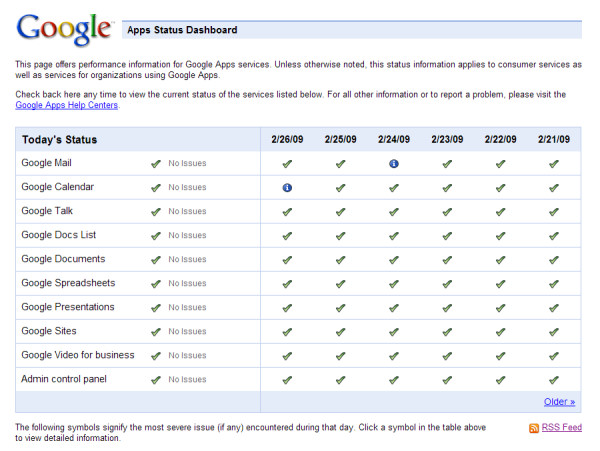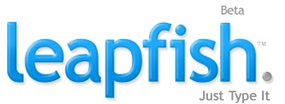
Zoho spiffs up its 2.0 version of Writer
The vast Zoho online applications suite is on the march to tab heaven, and the word processor is leading the pack. Version 2.0 of Zoho Writer, unveiled Thursday, throws over its previous chock-full-o'-icons interface for a menu-and-tabs look that's eventually be integrated into all of Zoho's offerings.
Those familiar with previous versions of Zoho Writer are apt to remember the three-row-deep mass of icons at the top of the browser, and may also call some of the more oblique commands in the menus (Name-Name, anyone?). That's gone. The icon stack is replaced by six tab-shaped buttons in the toolbar, each of which clicks into a well-organized menu of choices. At the bottom of the screen, at last, word and character counts join the usual authoring and page count information.

Barnes & Noble closes in on the e-Book market
Book retailer Barnes & Noble today announced it has purchased Fictionwise, the company which runs the e-Bookstores Fictionwise.com and ereader.com, in its move to launch its own e-book store this year.
Fictionwise is one of the country's largest independent sellers of e-books, and supports a number of formats, including Palm, PocketPC, Hiebook, Mobipocket, eBookMan, Adobe, MS Reader, and WinCE, several of which are supported by Amazon's Kindle. The site also offers free eReader software for Windows and Mac OS, as well as software for Palm OS, Symbian S60 and UIQ, and Windows Mobile devices.

Facebook's Zuckerberg: Copy to Win
It is now well-established that social network Facebook was built up from the idea (if not the actual code) of HarvardConnect, which later became ConnectU. CEO Mark Zuckerberg was sued for stealing the idea of Facebook from HarvardConnect, which he briefly worked on as a student.
So when Facebook announced yesterday that interface changes would soon be rolled out, which will turn the user's page into a real-time update feed of his friends' activities, many assumed this move was to replicate some of the more popular functionality of microblogging service Twitter, and remove some of the luster from that popularity. This idea is largely due to repeated rumors of an attempted Twitter buyout by Facebook.

Flickr expanding flickering-image capability to general membership
YouTube's probably not running scared just yet, but the Flickr community has finally gotten general access to video-posting capability. The Pro (paid-user) community has been uploading 90-second "long photos" to the service last year, but now any registered user can post to two standard-definition videos each month on the service.
According to Yahoo's Yodel Anecdotal blog, which announced the change earlier this week, the limit is in addition to the usual 100MB/month cap on photo uploads for non-paying users. Paying users also get a service boost, allowing them to upload HD video. And all hands are free to browse videos through the odd-but-amusing Flickr Clock, which sorts the clips by time.

AOL's IM hiccups during morning server upgrades
Available... no, away... no, available again... wait, no: Users of AOL's Instant Messenger service didn't know whether they were coming or going for a brief period this morning. According to an AOL spokesperson, the outage occurred during a software update and were resolved. By 11:00 am PST, no further glitches were officially reported, though Betanews tests have been revealing evidence of AIM misbehavior up until mid-afternoon.

No kudos yet for Microsoft's Kumo
The word which perhaps best characterizes the screenshots, leaked today to The Wall Street Journal's Kara Swisher, of Microsoft's internal tests of a search service tentatively entitled "Kumo," is unremarkable. They show a remade version of Windows Live Search with a few new innovations -- new for Microsoft, that is -- but at least based on these samples alone, not enough to clearly demonstrate why anyone should use Kumo instead of Google or Yahoo.
The screenshots display search results for three typical types of popular searches. These results are displayed on a page with a categorical navigation bar along the left side, offering ways in which the service can display different types of results (in Windows Live Search, these categories might appear in a line along the top marked See also). Unlike in Live.com, however, results can appear automatically grouped into Yellow Pages-like categories; for example, a search for "Audi S8" returned a list which was subcategorized into "Parts," "Accessories," "Forum," and other groupings with related terms.

Firefox 3.1 beta 3 developers prepare for freeze
Mike Beltzner, the director of Firefox, sent out the call Tuesday afternoon on mozilla.dev.planning: It's time to lock the trees and land the bugs on beta 3 of the 3.1 version of the browser.
As of 3pm PST, just nine bug landings stood between the dev team and handoff of mozilla-1.9.1 to the Release Engineering crew according to the mozilla.dev.planning thread on Google Groups. Beltzner noted in his Twitter stream that he "is hoping we get done with beta 3 code for Firefox tonight" after a day so busy he was wondering if he needed to block off time for bathroom breaks; the staff of Betanews wishes him all the best with, well, all of the above.

Web ads in Office 14? Not very likely
A Microsoft spokesperson today confirmed the text of a statement attributed to Business Division President Stephen Elop this morning, which was interpreted by bloggers including Silicon Valley Insider as meaning that the company's forthcoming Office 14 suite will add advertising as a source of alternate revenue.
"There will be ad-based revenue streams," reads the quote from Elop. "There's an opportunity to draw those pirate customers into the revenue stream. We want to draw them into the Windows family and maybe there's an upsell opportunity later."

Is Forrester advocating for blogger payola?
A report released this week by Forrester raises the creepy echo of pay-for-play scandals of yore, recommending that companies exchange goods, gift cards or the like for blog coverage as part of "sponsored conversations."
The report detailing how companies can "Add Sponsored Conversations To Your Toolbox" drew the attention of Marshall Kirkpatrick at ReadWriteWeb, who started his blog post by stating that he "respectfully disagree[s]" with the analyst firm's findings, but has words such as "dangerous" and "unsavory" in play by the end of the next sentence.

Another Google service outage makes its cloud look more like Swiss cheese
A Google spokesperson confirmed to Betanews this afternoon that soon after the company's Gmail service outage Tuesday, but in an unrelated incident, customers of the company's AdSense network were notified of a service outage.
"On February 25 in the morning Pacific Time," the spokesperson said, "there was a 90-minute AdSense outage that affected a small number of AdSense customers. All affected publishers were notified, and the problem was quickly resolved."

Bartz: 'Look for Yahoo to kick ass again'
There was no all-lower-case text, an absence of apology, not a single metaphor, and a definitive lack of "peanut butter" in yesterday's appearances, both in public and online, from new Yahoo CEO Carol Bartz. Upon assuming the post from Jerry Yang, Bartz said she would clean house, and analysts were told to expect fireworks. She absolutely delivered.
"Our brand [is] one of our biggest assets," Bartz wrote in her premiere on her new company's old blog yesterday. "Mention Yahoo practically anywhere in the world, and people yodel. But in the past few years, we haven't been as clear in showing the world what the Yahoo brand stands for. We're going to change that. Look for this company's brand to kick ass again."

Google News to add ads
On the same day that the 150-year-old Rocky Mountain News announced that it was shutting down effective Friday for lack of revenue, Google News confirmed its plan to sell AdWords placement on its Google News searches.
The ads, which officially debuted Thursday, work as AdWords usually do, serving up pages related to the search terms (rather than news results from specific publications). Josh Cohen, a business product manager for Google, described the results as "similar to what you see on regular Google searches or Google Book Search."

Facebook's new terms of service: Direct Democracy 2.0
In light of Facebook's recent Terms of Use conflicts, users' pages are now stamped with a message linked to a blog post from founder Mark Zuckerberg announcing suggested changes to how Facebook may be governed in the future.
Two documents, called "Facebook Principles" and "Statement of Rights and Responsibilities" have been posted for user review and comment. These will not go into effect until they have been voted upon and changed by the users. The comment period closes at 12:01 am Pacific Time on March 29.

Digital Music Forum: Monetization still hard to come by
Everyone in the digital music "value chain" needs enough compensation, said Ted Cohen, managing partner of TAG Strategic and a long-time observer of the music scene. Cohen spoke today on a topic that's becoming an ongoing theme at the Digital Music Forum East in New York City.
Taking the stage soon after the conference opened this afternoon, Cohen divided the digital music constituency into several groups: artists, content owners, and service providers. Artists "want music to be their day job," said the music industry veteran.

LeapFish attempts to break into the search game by contextualizing results
It's a tough game job creating a new search engine. Trying to break into the market with Google, Yahoo, and MSN is sort of like trying to start your own baseball league to draw fans away from MLB. Three-month-old search engine LeapFish isn't trying to start a new league, it's just trying build a better stadium.
LeapFish takes the indexed results from Google, Yahoo, and MSN, and does what what CEO Ben Behrouzi calls "the heavy lifting." That is, it gives a selection of results that include web entries, related statistics, videos, and other such relevant information rather than the same information you'd find if you were to use those individual search engines.
